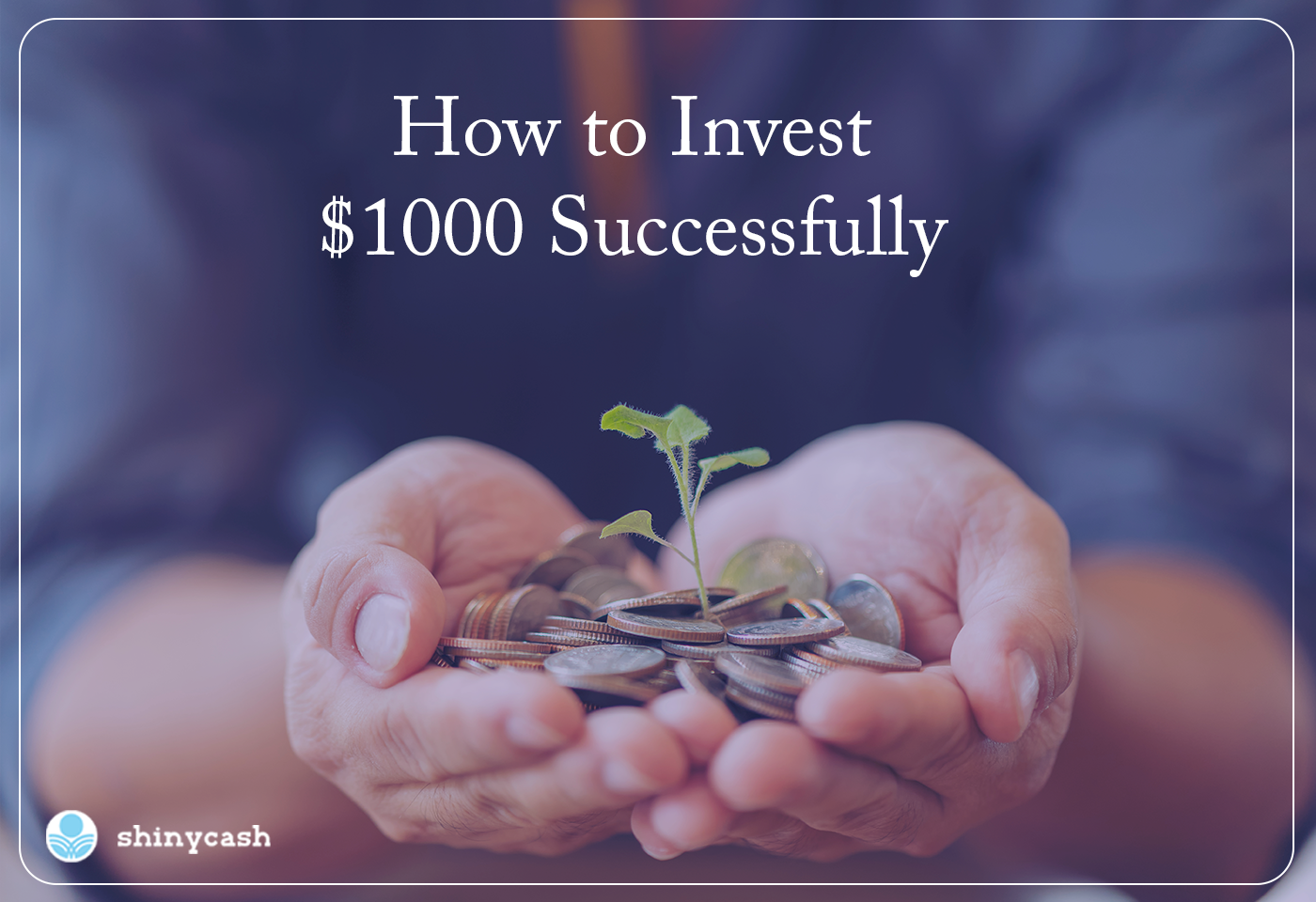If you have enough money in your savings and wish to make some more money, it is time to make an investment. You may think that investing a modest amount of money is nearly impossible; nevertheless, do not be afraid to take the risk; bear in mind that starting sooner allows you to develop your investment skills and make better decisions based on your previous experience.
When? How to? Where to?
Developing the habit of saving and investing early is an important component of how most billionaires amass their fortune. At the same time, while investing $1,000 may appear to be a modest, almost negligible money, it is a fantastic foundation to build on. So, now that you want to start, where to begin? The first and foremost step in making a good investment is to pay off your debts. The interest you save by paying off your debt is entirely risk-free.
Statistics show that the optimal investment for most people wishing to invest a small amount of money must be concise, low risk, and modest in terms of expenses. Thus, let us now explore the areas where beginners may invest a modest amount of money without worrying about losing it.
ETFs
Exchange-traded funds (ETFs) are a wonderful place to begin investing, as they are less expensive and often entail less risk than individual equities. ETFs are classified into two categories: Active ETFs and Passive ETFs. A passive exchange-traded fund is a financial product that attempts to imitate the performance of the whole equities market or a specific sector or trend. An actively managed ETF is a type of exchange-traded fund in which management or team makes choices on the underlying portfolio allocation rather than following a passive investing strategy.
There are no minimum investment requirements for exchange-traded funds. To begin investing in ETFs, you must first open a brokerage account, select your first ETFs, and allow your ETFs to do the rest for you.
Short-term Investments
Short-term investments, also known as marketable securities, are financial assets that may be converted to cash quickly, usually within a few months. When people make a short-term investment, it means they need the money for a certain period of time.
Compared to long-term investments, short-term investments won't have much yield. However, they are secure and an excellent start for beginners. They're also quite liquid, allowing you to retrieve your money whenever you need it. Furthermore, short-term investments are often lower risk than long-term investments, so you may have minimal or no loss at all.
Short-term investments for both businesses and individual or institutional investors are to safeguard capital while simultaneously earning a return comparable to a similar benchmark. Here are five top short-term investments to consider that will provide you with a return:
1. Corporate bonds
2. Money market accounts
3. Cash management accounts
4. Treasurys
5. Certificates of deposit (CDs).
Employer-sponsored Retirement Plan
Employer-sponsored savings programs, such as 401(k) and Roth 401(k) plans, enable employees to save for retirement. You may start saving in an employer-sponsored retirement plan with little sums that you won't even notice. Begin with as little as 1% of your paycheck. Then add it up by 1% each year. And if your employer matches your contribution, the picture will be much better.
.png)
High-Yield Savings Account
A high-yield savings account is a type of savings account that pays 20 to 25 times the national average for a savings account. Furthermore, it is a type of savings account that often provides a greater interest rate than a traditional savings or checking account. A high-yield savings account can provide a safe spot to invest cash for the short or long term. Getting the best rate may be crucial if you want to maximize your money’s growth.
High-yield savings accounts are usually available at banks and credit unions. However, they are more likely to be provided by online banks and fintech that offer web-based financial services. These accounts enable you to make an initial deposit as well as monthly deposits and are available through withdrawals or transfers to connected bank accounts.
Before Starting…
Remember, you don't have to be a billionaire to invest. The aforementioned investing platforms allow you to invest with as little as a few hundred dollars. So you might want to start with tiny sums at first to test out the benefits before gradually adding more of your funds.
Before you start investing, consider the following suggestions:
- First, it is crucial to have emergency savings of at least three months.
- Determine your financial objectives.
- Conduct your financial audit.
- Set aside a set amount of money to save on a regular basis.
- Repay high-interest debts.
- Consider your level of risk and how it evolves over time.
Understand that you do not have to be a financial expert. Instead, consider advising platforms like Betterment and Wealthfront. These platforms and programs often offer some consulting services and can guide you in the proper direction.

